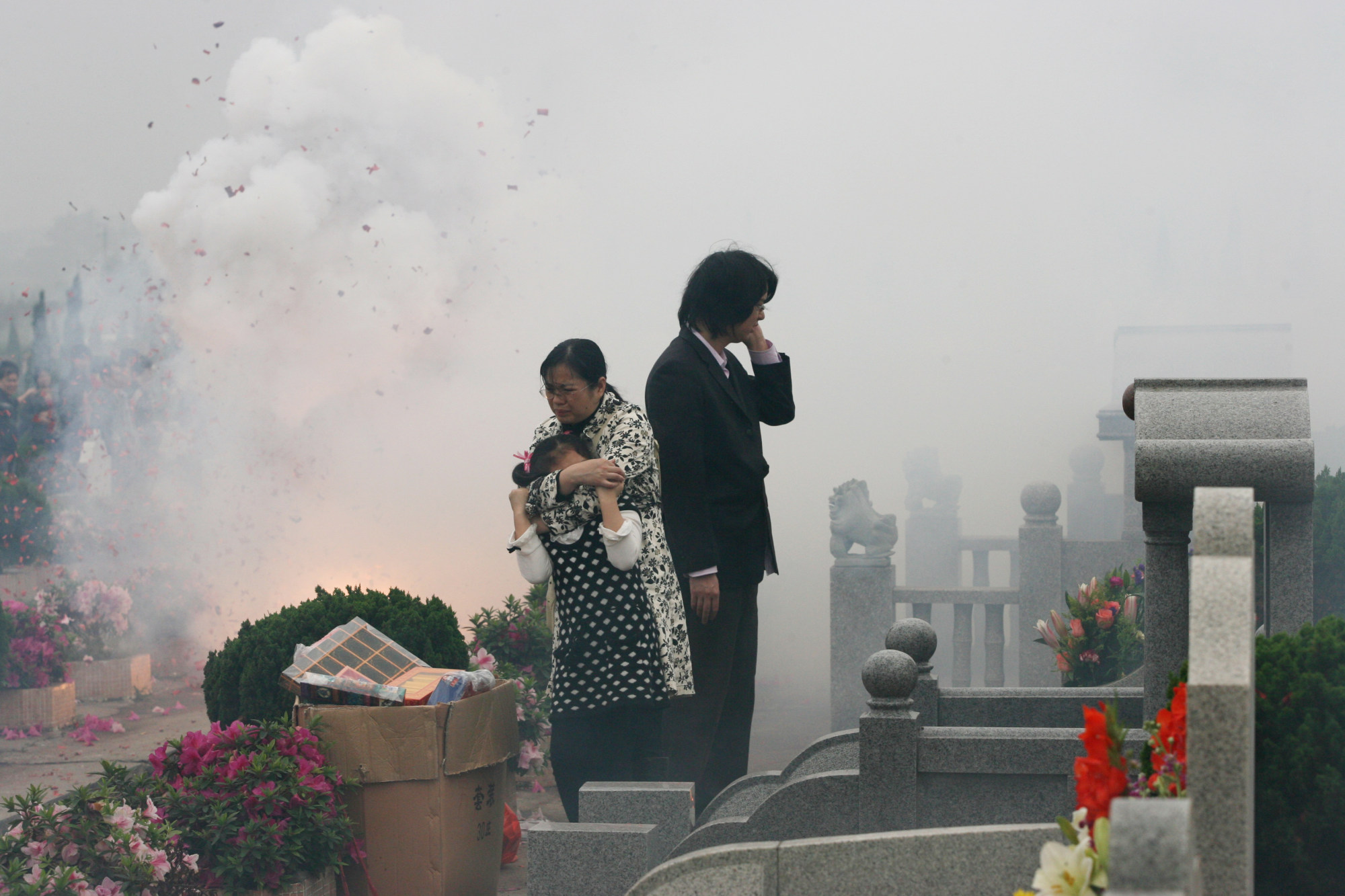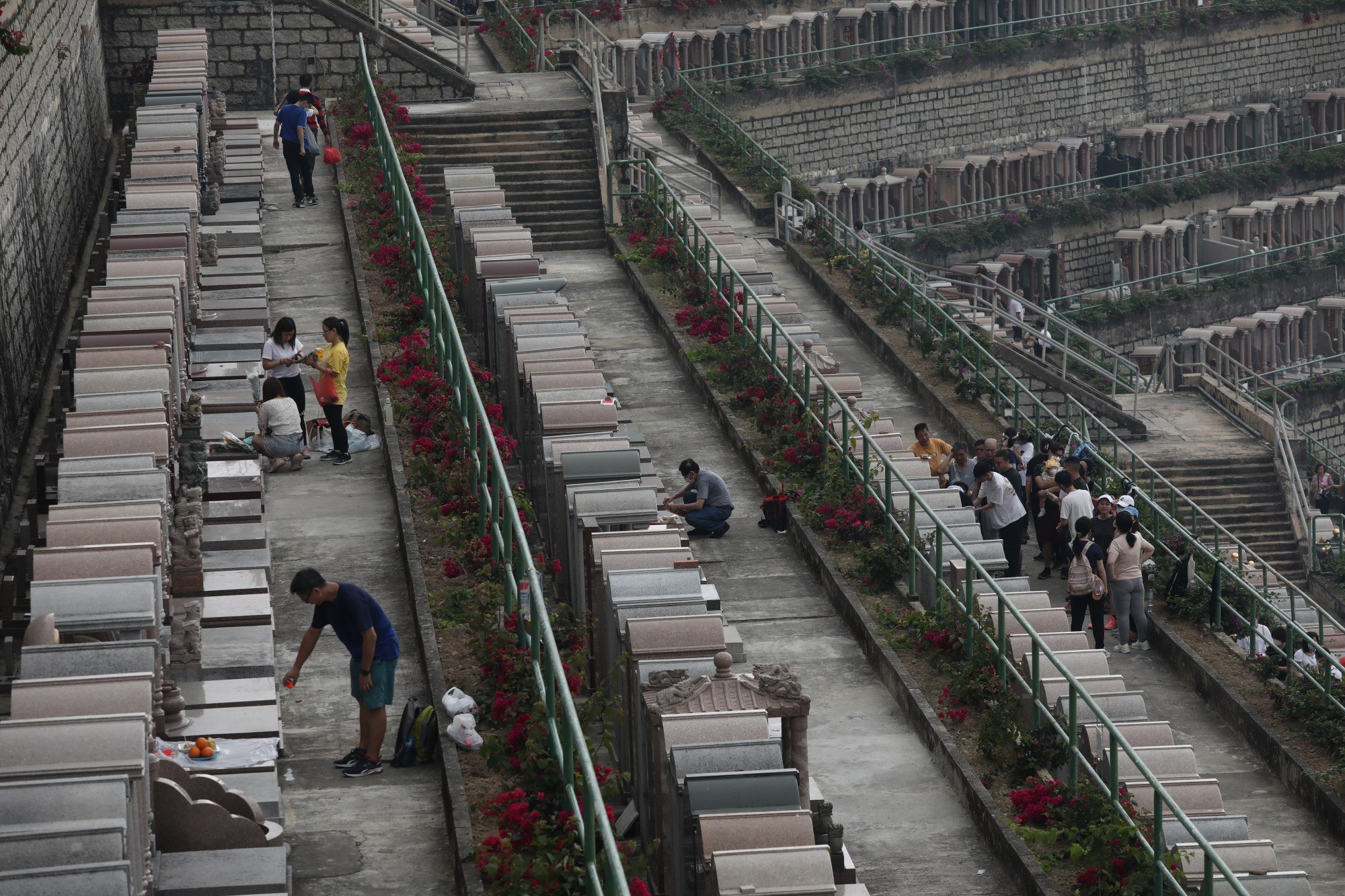
‘Send e-cards to the dead’: closed cemeteries in mainland China and live-streamed tomb-sweeping will dampen Ching Ming Festival amid Covid-19 surge
- Local governments are pushing for people to send online messages to their ancestors or hire cemetery staff to sweep tombs
- Many local governments are closing cemeteries altogether to prevent a Covid-19 outbreak
Cemeteries are being closed and officials are pushing online channels to honour ancestors during the upcoming Ching Ming Festival as China tries to neuter an Omicron-driven Covid-19 outbreak.
However, this year the festival will be complicated by Covid-19.

Local governments are encouraging people to send e-cards to their dead ancestors or hire a cemetery staff member to perform the grave-cleaning ritual to prevent people from gathering at cemeteries.
The ideas are not new. Suggestions to replace the centuries-old tradition with virtual tomb-sweeping were floated during the early days of the Covid-19 pandemic in 2020. However, two years later, the ideas are being pushed on a much broader scale, and closing the cemeteries in some cities is forcing residents’ hands.
The Guangzhou Funeral Service Center, the southern city’s regulator of funeral homes and cemeteries, is offering a “mail your remembrance” service whereby people are encouraged to write emails and send e-cards to their deceased family members and friends.
According to the official Guangzhou Daily, the campaign was first launched in 2020, but only saw 2,000 emails sent from residents in the past two years.

In Shenzhen, which just ended a week-long lockdown, grave visiting is completely banned and replaced with “cloud tomb-sweeping”, which allows people to virtually “clean graves” and make offerings, according to an official announcement earlier this month.
In Shanghai, which is currently in the middle of a two-step lockdown that will last until next Tuesday, the day of the festival, residents in many parts of the city can no longer visit cemeteries because they are required to stay inside their homes.
In late March, the municipal government issued a notice to suspend tomb sweeping after April 5.
A major cemetery in suburban Shanghai, Hai Wan Yuan, is offering tomb-cleaning services on behalf of the relatives. The cemetery charges a fee ranging from 35 yuan (US$5.50) to over 1,000 yuan (US$157), depending on the number of offerings and complexity of the ritual, it said on its official WeChat account.
Families can watch the activities via a live stream or get photographs sent to them.

